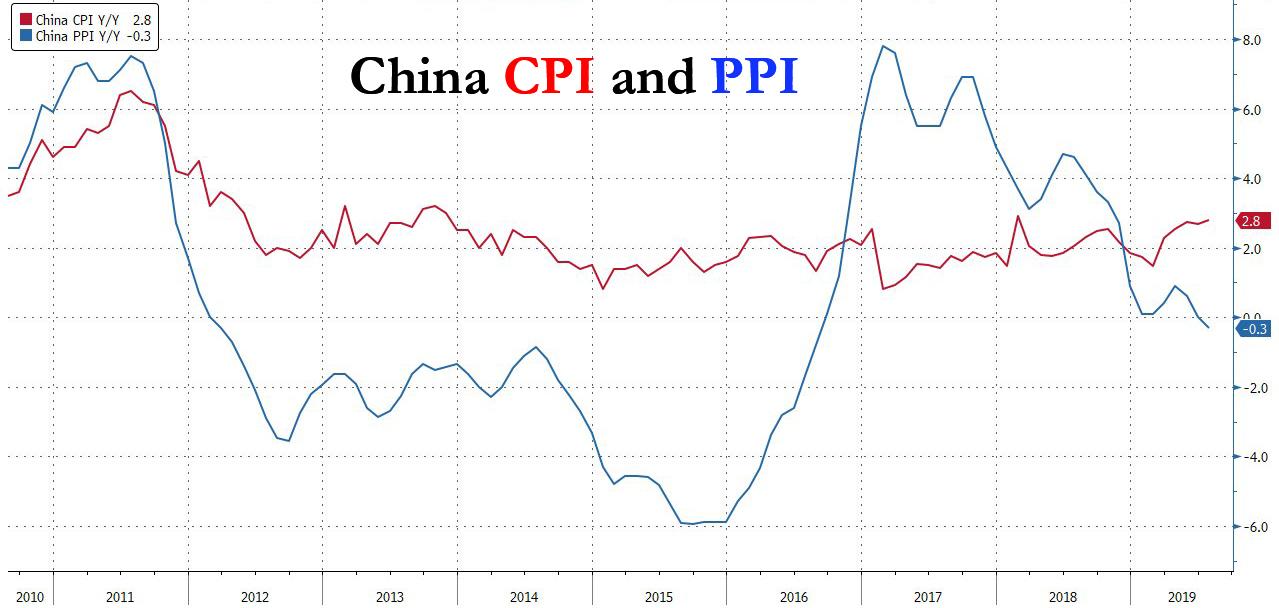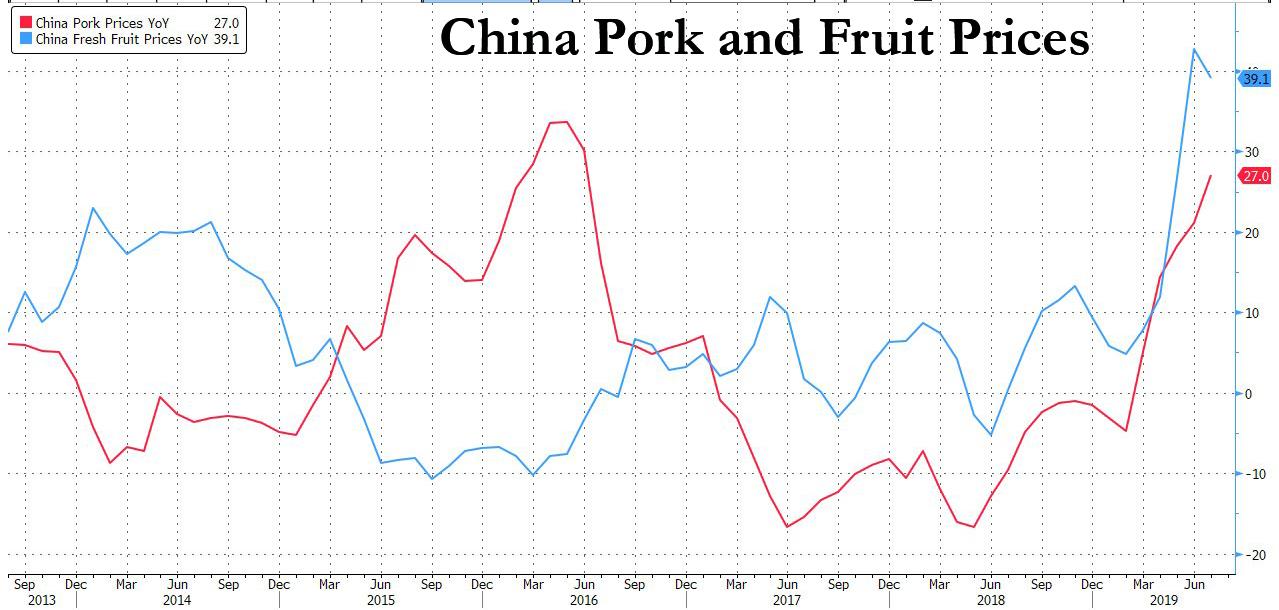China "Faces The Worst Of Both Worlds" As PPI Deflation Arrives While Food Inflation Soars
From ZeroHedge:
As if China did not have its hands full with a trade war, a plunging
yuan and growing civil unrest in Hong Kong, which is fast becoming the
potential epicenter for the next global crisis (and which Steve "The Big Short" Eisman thinks
is the next black swan), it now also has deflation to worry about at a
time when its ability to boost liquidity in the system is severely
limited... or maybe it's surging inflation.
On Friday, China's National Bureau of Statistics reported that
Producer Price Index, i.e. factory prices, fell 0.3% in July from a year
ago, missing the modest 0.1% decline expected by analysts. This was the
first annual decline in China's PPI in three years - since August 2016 -
and just like back then, was largely the result of tumbling commodity
prices which in turn depressed both manufacturing and raw material goods
prices. And with oil sliding, and iron ore especially plunging, not to
mention the whole trade war thing, it does not seems like a rebound here
is imminent at all.
Worse, since PPI is closely linked to corporate profitability, the
decline suggests that China is badly lagging in the credit impulse arena
despite having started off 2019 with a bang and some of the biggest
increases in Total Social Financing on record.
So what's the big deal: China has always been able to boost
inflation, all it had to do was turn on the credit spigot and inject a
few trillion in new bank and shadow loans into the economy.
Well, maybe in the past this was the case, but this time it will have
a big headache, because even as PPI declined for the first time in
three years, consumer prices jumped 2.8%, and coming in hotter than the
2.7% expected. This was tied for the highest annual headline inflation
since February 2018, and before that one would have to go all the way to
2013 to find a hotter CPI print.

A continuation of recent trends, the bulk of the inflation was the
result of sharply higher food prices, which surged 9.1% Y/Y as China
continues to battle the rapid spread of "pig ebola" which some expect will eradicate half of China's entire pig population, leading to even higher prices.
Sure enough, pork prices soared 27% in July from a year ago, the
highest in three years, but that wasn't even the worst of it: the prices
of fresh fruit soared by 39%, the highest since 2006!

This combination of lower factory gate prices and soaring consumer
prices is, needless to say, the worst possible outcome for Beijing,
whose firepower to stimulate the economy using conventional means is
severely limited; that this comes at a time when China is caught in an
ever escalating trade war with the US certainly doesn't help.
"Surging pork prices continued to push up consumer price inflation,"
said Capital Economics economist Julian Evans-Pritchard, but "weakening
demand dragged producer price inflation into negative territory last
month."...MORE

